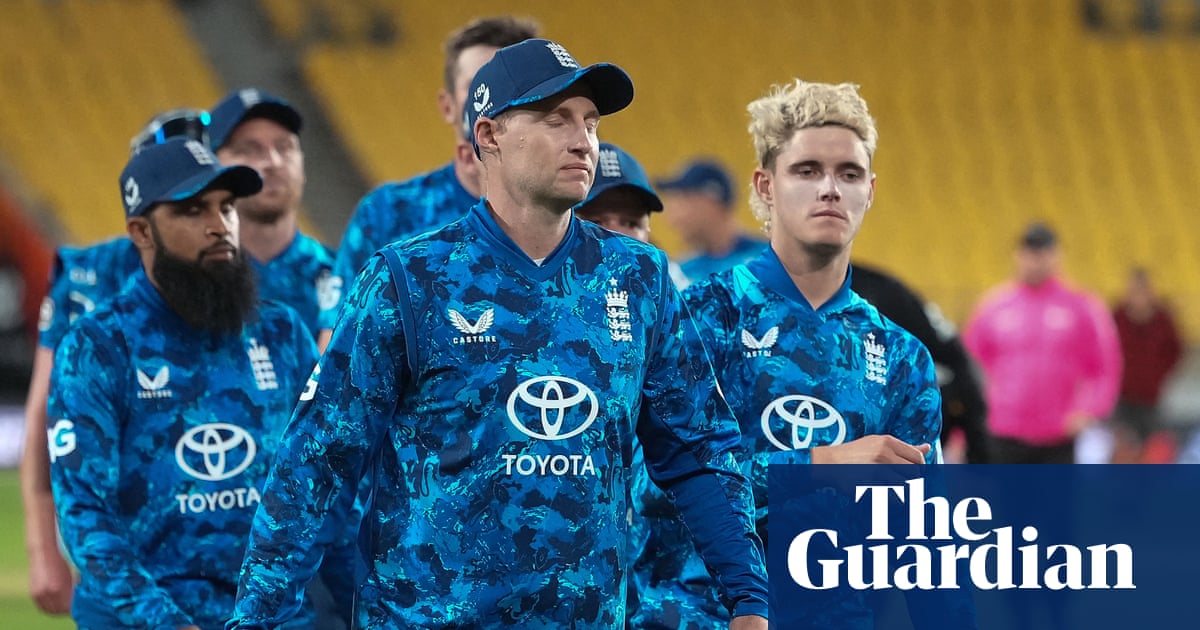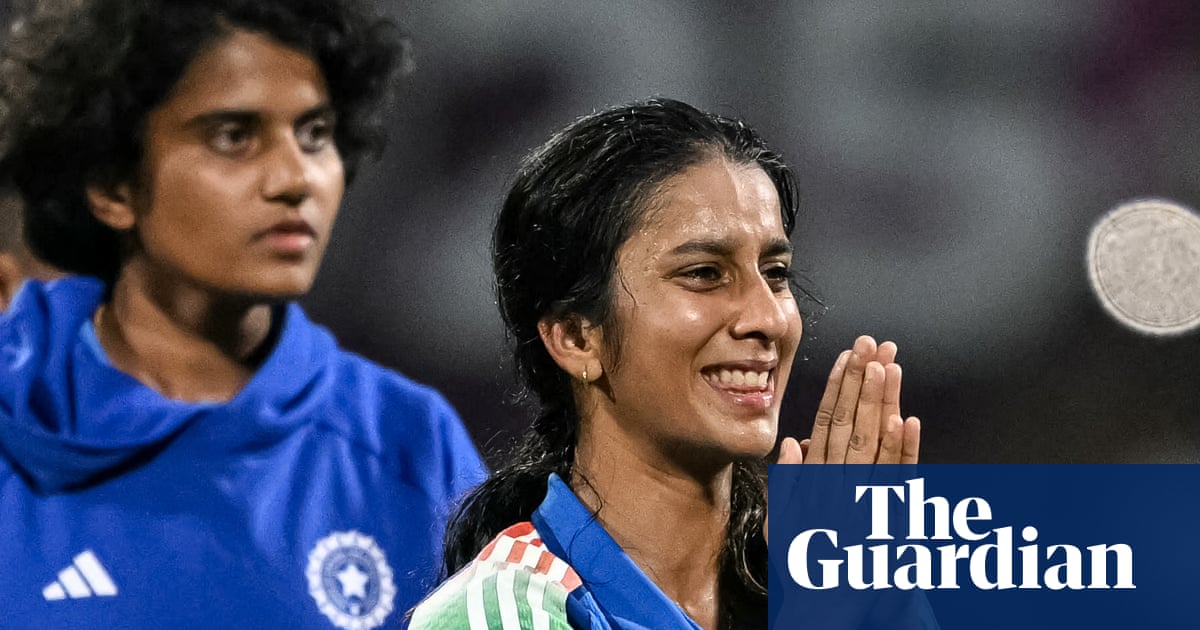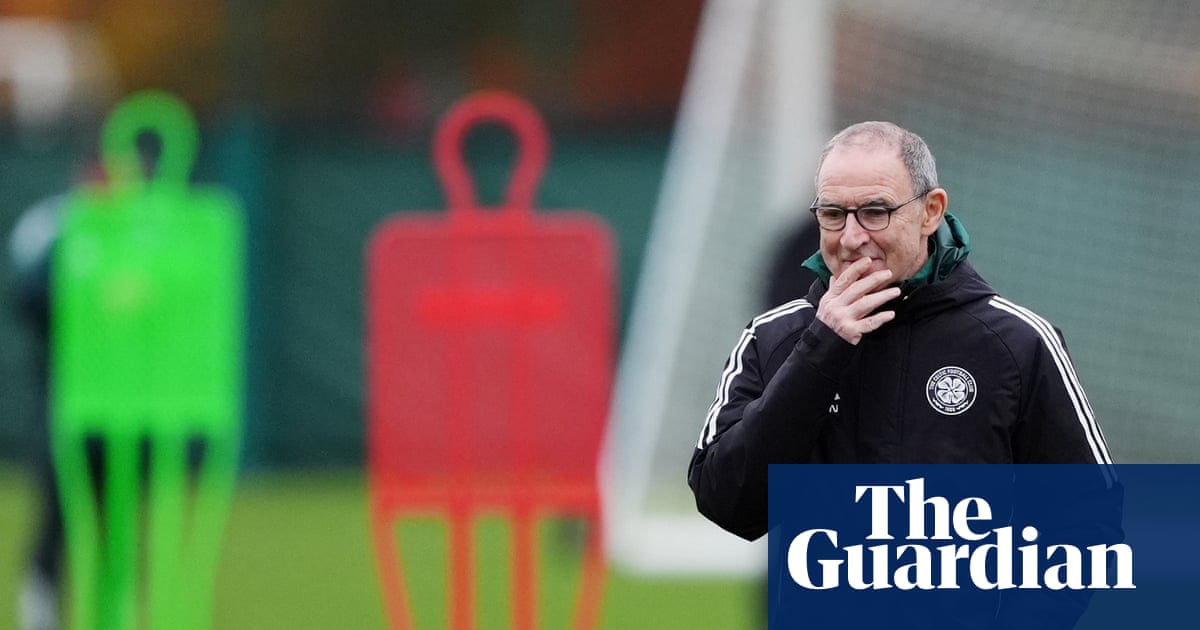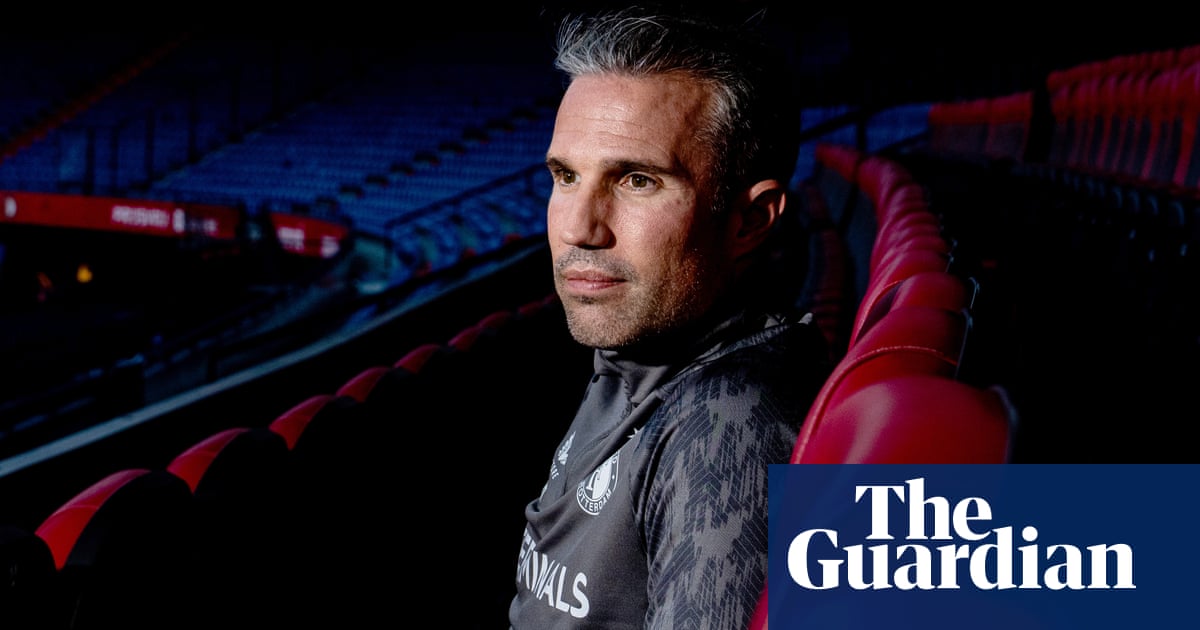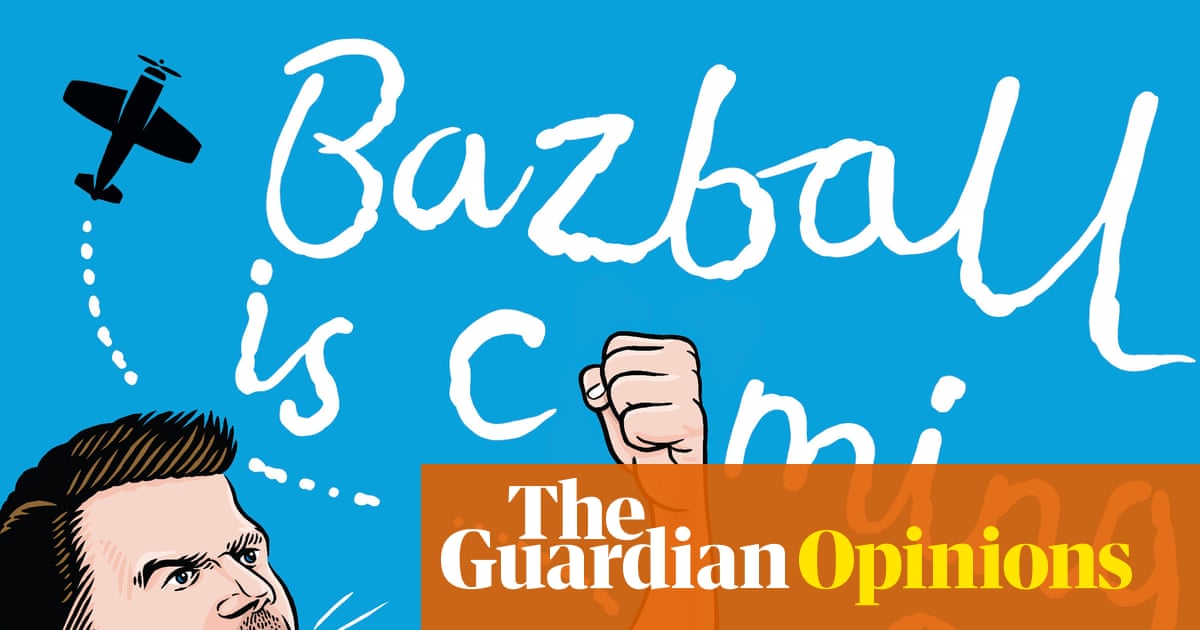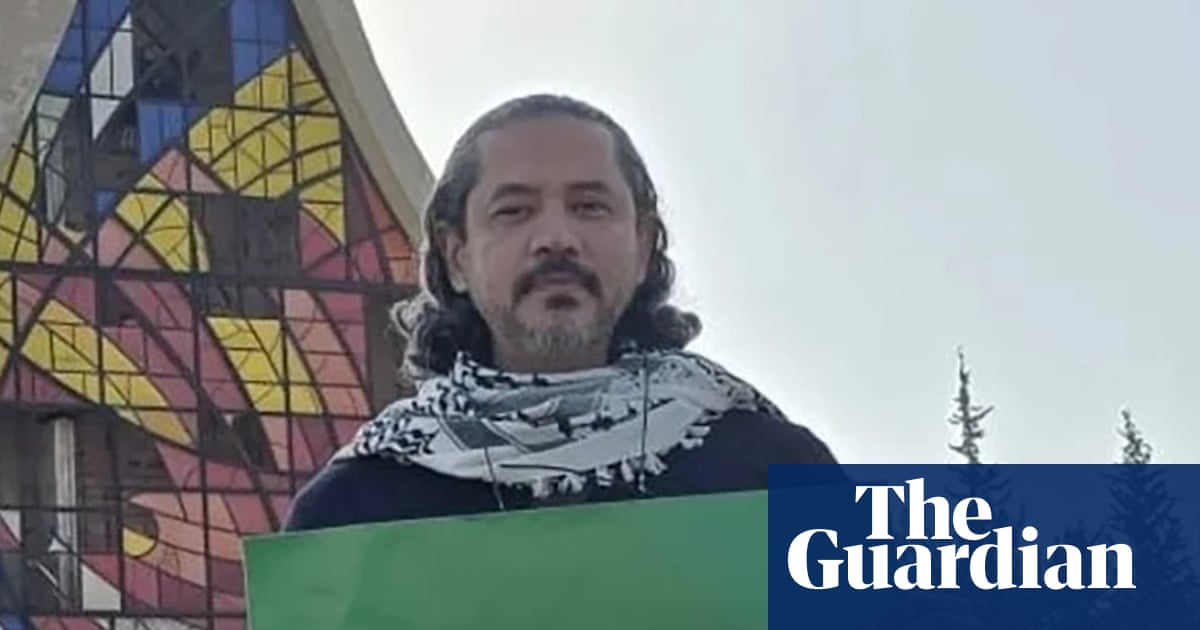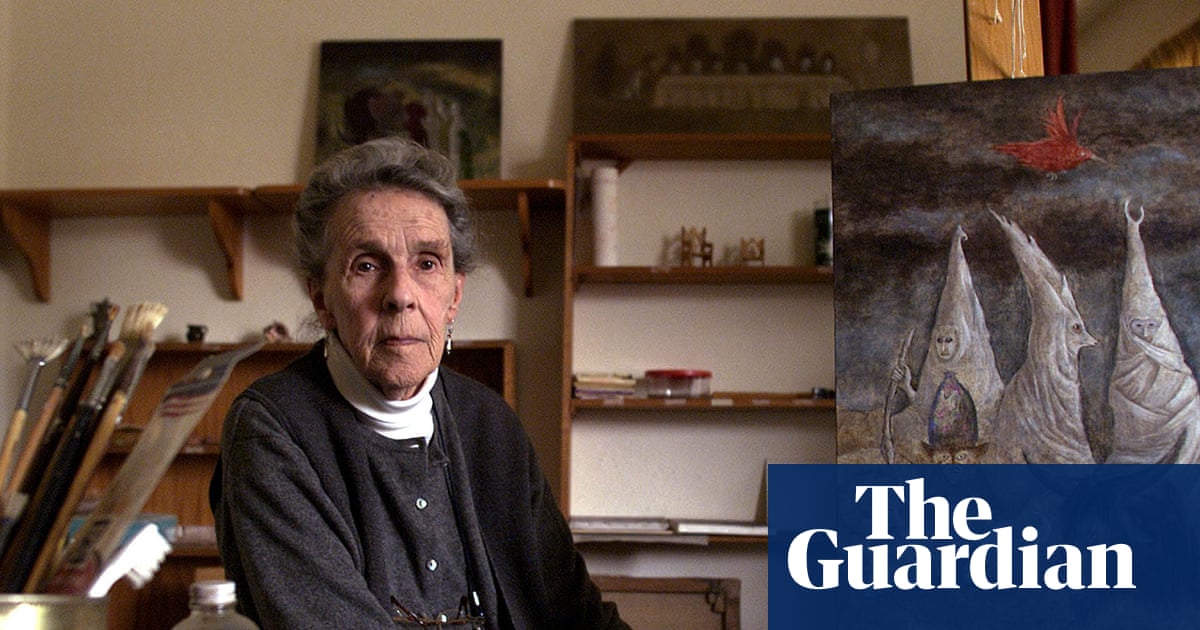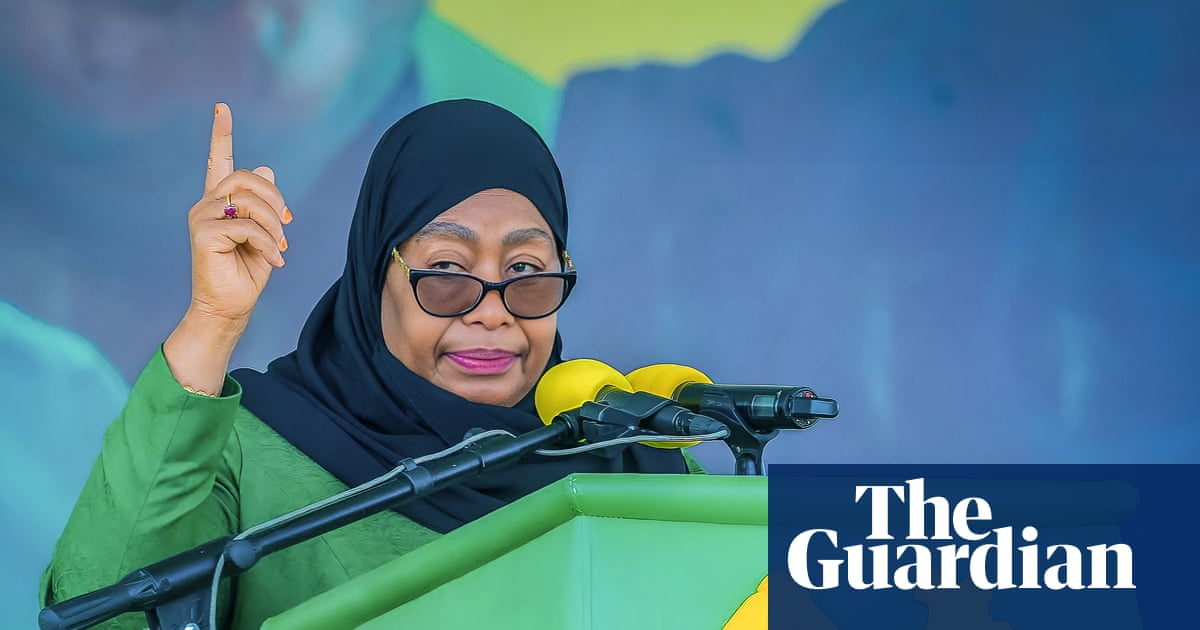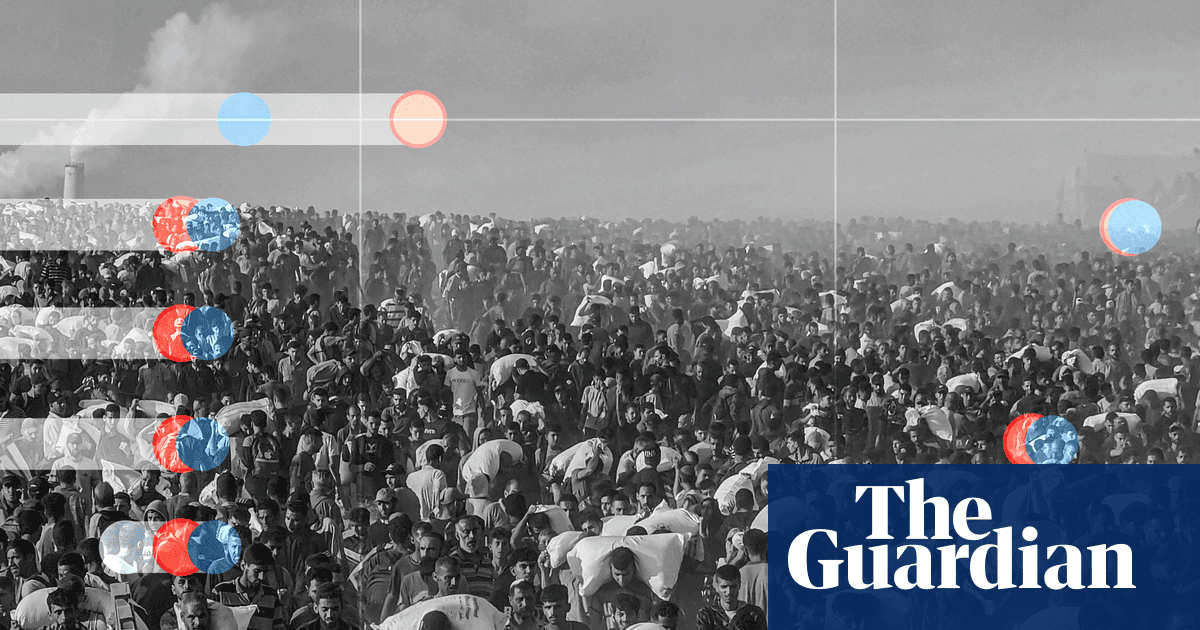Rates of severe malnutrition among children aged under five at Médecins Sans Frontières’ Gaza City clinic have tripled in the last two weeks, the charity has said, as starvation in the Israeli-besieged strip worsens.
The global aid community has sounded the alarm as Gaza descends deeper into mass starvation, with resulting deaths being reported daily as Israel allows only a trickle of aid into the territory.
MSF said a quarter of all young children and pregnant or breastfeeding women it screened at its clinics last week were malnourished, with the number of people needing care for malnutrition at its Gaza City location quadrupling since May.
MSF is one of the largest medical providers in Gaza, with more than 1,000 staff in the strip providing medical services ranging from maternity care to emergency surgery.
The charity blamed what it called an Israeli “policy of starvation” for the hunger crisis, as global condemnation grows over what more than 100 aid groups say is Israel’s blockade of most aid into Gaza.
“Israeli authorities’ deliberate use of starvation as a weapon in Gaza has reached unprecedented levels, with patients and healthcare workers themselves now fighting to survive,” MSF said in a statement on Friday.
At least 122 people have died from starvation in Gaza, with nine more dying in the last 24 hours, according to health authorities.
The World Food Programme on Friday said nearly a third of people in Gaza were not eating for days, and that the hunger crisis had reached “new and astonishing levels of desperation”.
“Nearly one person in three is not eating for days. Malnutrition is surging, with 90,000 women and children in urgent need of treatment,” the WFP said in a statement.
Naji al-Qurashali, an obstetrician-gynaecologist in Gaza, said statistics appeared to underestimate the true scale of the problem, estimating that 50% of the hundreds of pregnant women he saw each day were suffering from malnutrition.
“The malnutrition situation is unimaginable. Throughout my entire medical career, I never expected, not even in my wildest dreams, that things would reach this level,” said Qurashali.
Miscarriages had increased significantly among the patients he saw as mothers struggled to find food to feed themselves, he said. Those babies that were carried to term were significantly underweight and were increasingly born prematurely or with disfigurements.
Qurashali said he lacked many of the medical supplies necessary to treat the malnourished women. He and other doctors were forced to use unsanitary medical gloves and prescribe expired medication to patients.
“As a helpless doctor, it is an incredibly painful feeling,” he said. “Many times, I leave the hospital running, because I can’t bear the fact that I can’t meet even the simplest needs of these women.”
Medical experts have said that society’s most vulnerable, children and pregnant women, are the first to die in mass hunger events.
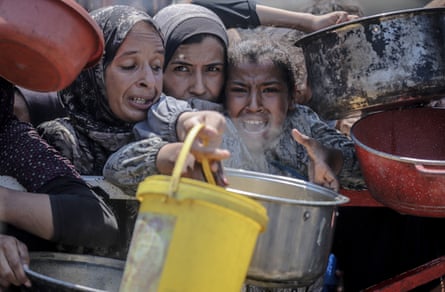
Israel has denied it is responsible for the hunger crisis in Gaza, with the foreign ministry calling it a “deliberate foreign ploy to defame Israel”, and blamed the UN for failing to distribute aid. The UN said it was operating as well as it could under Israeli restrictions, which prevent the UN-led aid system from using its 400 aid distribution points throughout the strip.
The UN secretary general, António Guterres, accused the international community of sticking its head in the sand as Palestinians starved in Gaza, lambasting what he called a “lack of humanity”.
“This is not just a humanitarian crisis. It is a moral crisis that challenges the global conscience. We will continue to speak out at every opportunity,” Guterres said on Friday.
The leaders of the UK, France and Germany said in a joint statement on Friday that the “humanitarian catastrophe” in Gaza “must end now” and called on the Israeli government to lift restrictions on aid.
The French president, Emmanuel Macron, said late on Thursday that France would recognise a Palestinian state at the UN general assembly in September. The UK prime minister has come under pressure to do the same, with more than 100 MPs signing a letter demanding Keir Starmer follow suit.
Macron had previously urged the UK to recognise a Palestinian state alongside France and is expected to try to enlist other European countries to do the same. Starmer called the humanitarian situation in Gaza “unspeakable and indefensible” in a post on X on Thursday, but said nothing about recognising a Palestinian state.
Macron’s move was dismissed by Donald Trump, who was due to meet Starmer on Friday evening when he arrived in Scotland. The US president said of Macron on Friday: “He’s a very good guy. I like him, but that statement doesn’t carry weight. Here’s the good news: what he says doesn’t matter. It’s not going to change anything.”
Why is it so difficult to report on Gaza?
ShowCoverage of the war in Gaza is constrained by Israeli attacks on Palestinian journalists and a bar on international reporters entering the Gaza Strip to report independently on the war.
Israel has not allowed foreign reporters to enter Gaza since 7 October 2023, unless they are under Israeli military escort. Reporters who join these trips have no control over where they go, and other restrictions include a bar on speaking to Palestinians in Gaza.
Palestinian journalists and media workers inside Gaza have paid a heavy price for their work reporting on the war, with over 180 killed since the conflict began.
The committee to protect journalists has determined that at least 19 of them “were directly targeted by Israeli forces in killings which CPJ classifies as murders”.
Foreign reporters based in Israel filed a legal petition seeking access to Gaza, but it was rejected by the supreme court on security grounds. Private lobbying by diplomats and public appeals by prominent journalists and media outlets have been ignored by the Israeli government.
To ensure accurate reporting from Gaza given these restrictions, the Guardian works with trusted journalists on the ground; our visual teams verify photo and videos from third parties; and we use clearly sourced data from organisations that have a track record of providing accurate information in Gaza during past conflicts, or during other conflicts or humanitarian crises.
Emma Graham-Harrison, chief Middle East correspondent
The Israeli military announced on Friday that it had agreed to let Jordan and the United Arab Emirates airdrop aid into Gaza. Each flight carrying aid is far more expensive and holds fewer supplies than lorries do. Hamas described it as a political stunt.
“The Gaza Strip does not need flying aerobatics, it needs an open humanitarian corridor and a steady daily flow of aid trucks to save what remains of the lives of besieged, starving civilians,” Ismail al-Thawabta, the director of the Hamas-run Gaza government media office, told Reuters.
Amal Masri, a 31-year-old mother in Gaza who is pregnant, said finding food was near impossible. The food she did find was unsuitable for her pregnant state, and if she ate it out of desperation, she vomited.
“Most of the time I am completely exhausted, my blood pressure is very low, and I often feel like I’m suffocating, like I’m on the verge of death,” Masri said.
Her husband, like many Palestinians, has been unsuccessful at getting food from the private US-backed Gaza Humanitarian Foundation (GHF) distribution sites, and arrives home injured and empty-handed. More than 1,000 people have been killed while trying to get food at GHF or aid sites – the GHF denies any responsibility for shootings outside its distribution sites.
As the humanitarian situation declines, ceasefire negotiations appear to have collapsed. On Thursday, Israel and the US recalled their negotiators from Qatar, where talks were being held.
Trump blamed Hamas for the collapse, accusing it of not wanting to make a deal or give up Israeli hostages. The US president said he thought Hamas leaders would be “hunted down”.
Hamas officials denied they were responsible for the end of the round of peace talks, and accused Israel of stalling.
Basem Naim, a senior Hamas official, said: “What we have presented – with full awareness and understanding of the complexity of the situation – we believe could lead to a deal if the enemy had the will to reach one.”

 3 months ago
42
3 months ago
42


